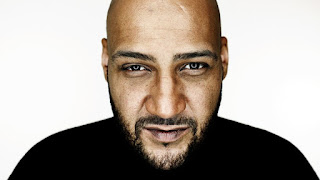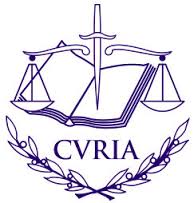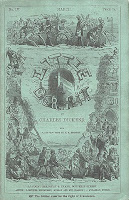Eleonora Rosati writing on the IPKat
- To what extent EU copyright allows sampling, ie the taking of part of a sound recording for re-use as an instrument or sound recording in a different song or piece [readers with an interest in hip-hop will know that sampling in this genre is very frequent and in the US has caused quite a few IP-related headaches to the likes of Kanye West and Jay Z]; and
- What role fundamental rights play in the copyright sphere. More specifically, what is the relationship between copyright protection, freedom of the press, and freedom of information?
WARNING: I do not speak German, and have tried to make a sense of these new cases by reading the relevant press releases; please let me know if I have misunderstood anything.
Sampling, free use, a 'right' to quote, and fundamental rights
The first reference (I ZR 115/16 - Metal auf metal III) has been made in the context the longstanding and complex [at some point the case even ended up in front of the German Constitutional Court] Metall auf Metall litigation concerning the unauthorised sampling by music producer Moses Pelham of a 2-second rhythmic sequence from Kraftwerk's 1977 song 'Metall auf Metall' for use in his own 1997 'Nur Mir'. The sample features in 'Nur Mir' (performed by Sabrina Setlur) as a continuous background loop.
Following a number of lower courts' decisions [the first one was issued in 2004], as well as the already mentioned instalment before the Constitutional Court, the case is now pending before the BGH.
Today, this court decided to stay the proceedings and seek guidance from the CJEU on the correct interpretation of EU law. More specifically - and as explained in the relevant press release - the BGH is asking:
- Guidance on the notion of reproduction in part in relation to phonograms as per Article 2(c) of the InfoSoc Directive [readers will recall that the CJEU has already interpreted generously the notion of 'reproduction in part' in its seminal decision in Infopaq] in order to determine whether a 2-second sample may fall within the scope of the right of reproduction; and
- whether a phonogram sampling an earlier phonogram is a copy of it within the meaning of Article 9(1)(b) of the Rental and Lending Rights Directive.
 |
| Moses Pelham |
Should the answer be in the affirmative, then the BGH is asking:
- Whether the widely discussed German 'free use' exception within Section 24(1) of the German Copyright Act ("An independent work, created in the free use of the work of another person, may be published and exploited without the consent of the author of the work used.") is compatible with EU law;
- Should the defendants be unable to rely on the 'free use' exception, whether the quotation exception within Article 5(3)(d) of the InfoSoc Directive might nonetheless shield them from liability [readers with an interest in this defence will be aware that there is hardly an EU quotation exception, as different Member States have transposed Article 5(3)(d) in very different ways: see for instance this discussion of whether GIFs could be regarded as quotations]. In particular, the defendants in the national proceedings are arguing that quotation is a 'right', rather than just an exception. Although I am only relying on the press release, I suspect that the defendants' argument might be also based on the language of Article 10(1) of the Berne Convention, which - especially in its French version - seems to suggest a mandatory quotation exception [see further here, pp 19 ff];
- What role the rights granted by the Charter of Fundamental Rights of the European Union plays: in particular, what is the relationship between copyright protection (Article 17(2)) and freedom of the arts (Article 13)?
Can freedom of the press and freedom of information trump copyright protection?
The second reference (I ZR 139/15 - Afghanistan Papiere) has been made in the context of litigation between the German Government and German newspaper WAZ over the unauthorised publication by the latter of the so called 'Afghanistan Papers', ie confidential military reports on the operations of the Germany armed forces in the region in the period 2005-2012.
According to the relevant press release, the BGH has stayed the proceedings and asked the CJEU to clarify whether and to what extent the assessment of prima facie copyright infringement and the applicability of the exceptions in favour of the press (Article 5(3)(c) of the InfoSoc Directive) and for quotation (Article 5(3)(d) of the same directive) is informed by a fundamental rights analysis.
In particular, can copyright protection bet trumped by the need to safeguard freedom of the press and freedom of information? Or can fundamental rights be even directly invoked to prevent enforcement of copyright?
There is probably no need to note that this question goes to the very heart of copyright protection, and will revive the longstanding discussion around the scope of protection.
Posted By Eleonora Rosati to The IPKat on 6/01/2017 02:11:00 pm. Background can be found here: http://www.musiclawupdates.com/?p=5257








